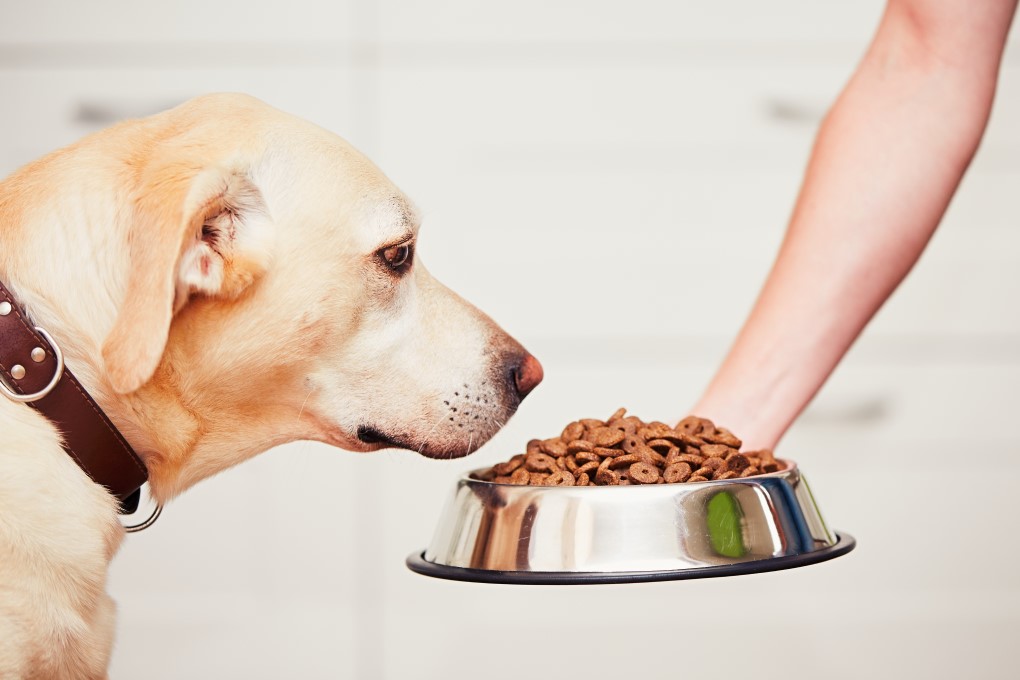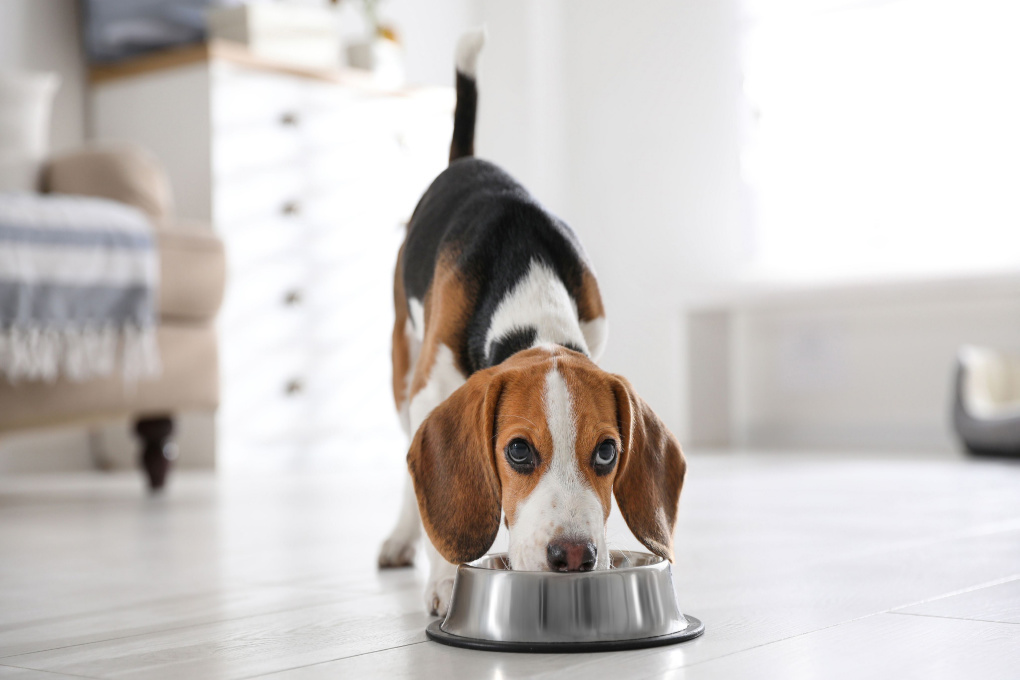Pet parents should never underestimate the power of a complete and balanced diet for their four-legged family members. A nourishing, nutritious and wholesome meal plan is a good place to start when considering your dog’s health, happiness and well-being.
A properly structured routine – that provides our canines with all the goodness they crave – is a surefire way to look after their mind, body and soul.
While diet alone might not be enough to inhibit your precious pet’s behavior, it can play a prominent part in fixing or, at least, alleviating your dog’s condition. Stress and anxiety can be triggered by a range of factors, so the right food, and the right amount, provided in a calming environment, can be the key to soothing your dog’s mental state.
How is your dog’s diet and anxiety linked?
Take a moment to consider how certain foods can make you feel if you’re eating too much – or even too little – of it. Getting the balance of proteins, carbohydrates, fats, minerals, vitamins, nutrients and fibers just right is as essential for our furry companions as it is for their humans.
Diets are like a jigsaw, or the components of working machinery; if any of the pieces/elements are missing, it’ll remain incomplete and simply will not function as it should. Ticking all the aforementioned boxes, while eradicating highly processed foods packed with artificial flavors and preservatives as well as sugary or carbohydrate foods, should help you reduce your doggy’s distress.
High-quality animal protein sources – found naturally in chicken, turkey, lamb, duck, beef – provide your dog with amino acids that aid their overall growth and development. Fish comes with an offering of healthy fats, fruits/vegetables are high in fiber and contain a host of vitamins and minerals that are good for a dog’s health, while carrots, green beans, asparagus and broccoli are nutrient-dense offerings, as are apples, blueberries, strawberries or bananas.
Overlooking any of these daily essentials, which can ultimately lead to nutrient deficiencies, can lead to a variety of medical conditions which, in turn, can enhance feelings of stress and/or anxiety.
If our friendly fur babies aren’t properly fuelled, therefore starved of the energy they need to thrive, they might eventually lose muscle mass, which can exacerbate stress/anxiety levels.
Similarly, a spike in the body’s sugar levels, caused by overfeeding basic carbohydrates, can lead to a debilitating change in a dog’s mood and behavior. Obesity, which comes with its own risks, can also trigger an emotional response from our pets, which is why it is imperative to get their diets spot on and keep their tails wagging.
Does changing a diet help with anxiety in dogs?
Your dog’s diet can both help or hinder their mental fortitude, depending on just how right or wrong we, as pet parents, get the balance.
Hearty meals, that are scrumptiously lip-smacking, will keep your sidekick in tip-top shape, make them body confident, while having a spring and a swagger in their step.
A healthy body builds a healthy mind so if they’re enjoying recipes that are full of flavor, rich in antioxidants, and contains magnesium, B vitamins and Omega 3 fatty acids, then your four-legged friends are on to a winner.
There are, however, other factors to take into consideration when harnessing the link between diet and behavior. While protein is an essential element in a dog’s daily diet, too much of it can have an adverse effect and cause anxiety or even aggression.
Changing a diet too quickly, or adding new foods, and falling into irregular feeding times, can also damage your once-happy hound’s demeanor. Once you stumble on a menu and a schedule that suits, stick to it. If it ain’t broke, don’t fix it, it really is that simple. Trust us; if they’re happy, you’re happy, and life will become stress-free for all parties.
Should I seek support from a vet in regards to diet or anxiety?
If you’re ever stumped by your sidekick’s mood swings, baffled by their behavior, dubious when it comes to their diet, or find yourself generally curious about your canine, then seeking veterinary advice is the way to go. Anxiety in dogs can affect all breeds, and while it is considered a perfectly normal and natural emotion, it is important to get it checked out if it becomes overbearing and uncontrollable.
If your pet’s anxiety is interlinked with their diet, then your vet may be able to pinpoint the root cause of the issue. It might be a nutritional imbalance, an allergy that has caused inflammation in the body, or other issues related to the foods they’re eating, which can lead to a spike in behavioral abnormalities. Vets are professionals in their field, so if anybody can get to the bottom of your dog’s troubles, they can.
Once diagnosed, they’ll be able to structure a plan to meet your pet’s dietary needs, which will also heal their mind.
Nobody knows your dog better than you
Our clever canines understand their humans like the back of their paw – and it’s incredibly beneficial for pet parents to know their dogs like the back of their hand. Studying their routines, behaviors, attributes and traits can give you a massive head start when it comes to acknowledging and understanding transformations in their mood, persona or demeanor.
It should be apparent when feeding routines are/aren’t working, whether portion sizes are appropriate for your dog’s needs, and whether they’re meals are packed with all the goodness they need to attack the day ahead. Consider what you’re feeding them, how often and at what times. Failing to stick to a regular and familiar schedule can make your fragile fur baby anxious with both longing and uncertainty.
Ensure a calm environment, also, and feed dogs separately if there are multiple in the household.
A raucous, hectic and competitive environment, filled with disturbances, is not conducive to a dog’s mental stability at feeding times. Try to limit interruptions and stress-inducing situations so that they can enjoy their food in peace.
If you liked this article, you’ll also enjoy:






